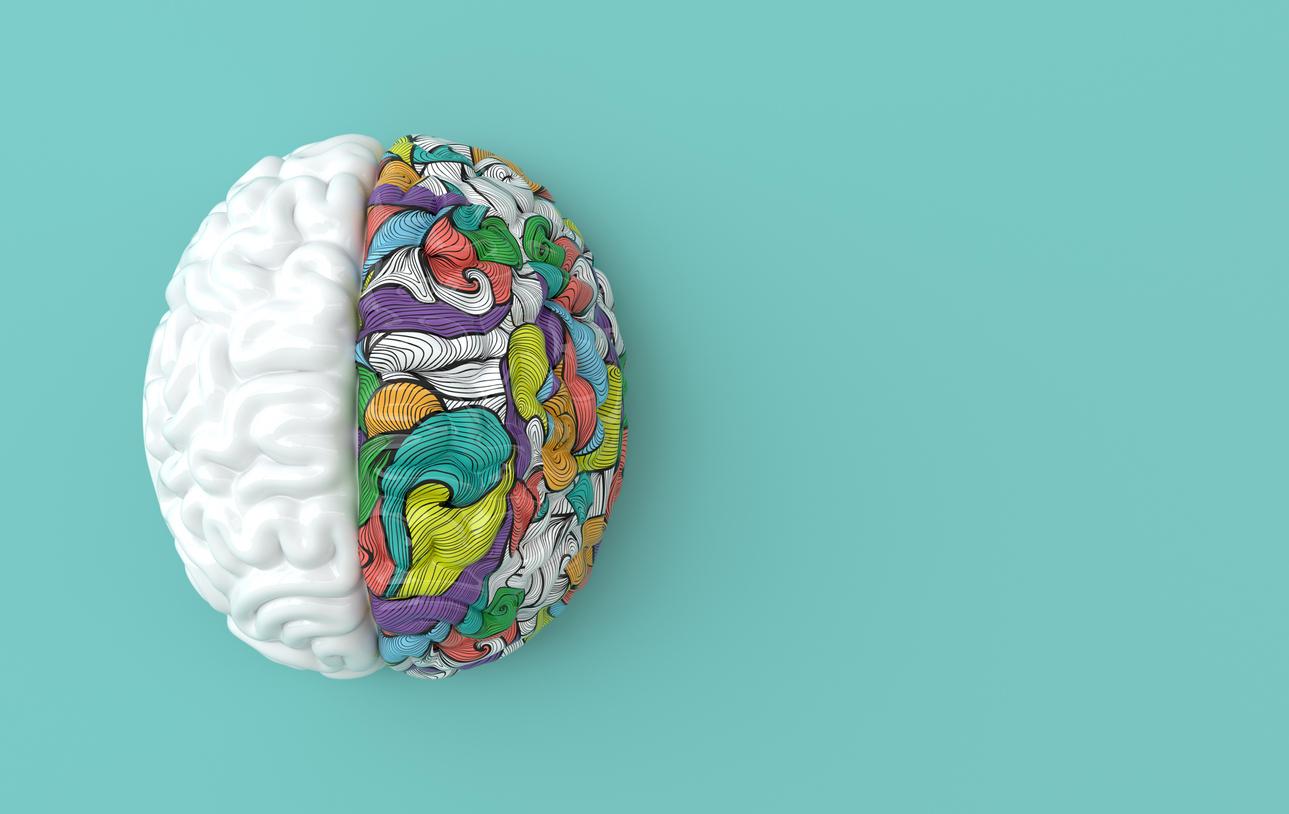
From phobia to PTSD
How does ‘ordinary’ anxiety become an anxiety disorder? When should you seek help? Psychiatrist and philosopher Damiaan Denys answers eight questions about anxiety disorders.
1. How does ‘ordinary’ anxiety become an anxiety disorder?
Researchers do not yet know exactly what goes wrong in people with an anxiety disorder. What they do know is that the cause lies in the amygdala. This area of the brain plays an important role in processing emotions. Psychiatrist Damiaan Denys: “When you are startled by a car that just drives past you, stimuli go to the amygdala. It says: this is something to be afraid of. The body then produces the hormone noradrenaline, you become more concentrated, tense. your muscles and get a flight response. Or you freeze. In people with an anxiety disorder, the amygdala is activated more often and faster. They therefore react with fear to things that are normal in themselves, such as a group of people talking.”
2. When should you seek help?
Everyone is anxious sometimes. But if the fear is disrupting your daily life, it is wise to seek help. Denys: “During the diagnosis, we look at the duration of the fear, its severity and its impact. If your fear lasts longer than an hour a day, if you can no longer work, if your relationships go wrong or if you can’t live a normal life If you can suffer more, you can speak of an anxiety disorder.”
3. What symptoms do you have in a panic disorder?
In a panic disorder, you suffer from panic attacks: short, intense fear that can occur suddenly. In addition to the anxious feeling, you may experience palpitations, breathlessness, sweating, a tight feeling in the chest, tremors, dizziness or nausea. A panic attack can also cause fear of the fear itself. You are then afraid that you will pass out or even die.
4. What is a phobia?
If you have a phobia, you are afraid of specific things, such as walking or driving over a bridge, certain animals or circumstances, the dentist, small spaces or great heights. You will avoid these situations. A phobia can cause panic attacks or extreme fear.
5. What is a social phobia?
With social phobia, you are very afraid to do things in front of others. The fear of going off or being embarrassed is so great that you start avoiding social situations. For example, giving a presentation or visiting, or even having a conversation in the street.
6. What is PTSD?
People with post-traumatic stress disorder (PTSD) have experienced a traumatic event, such as abuse, sexual violence or a car accident. The fearful memories can cause nightmares or flashbacks. PTTS can often be treated well, for example with EMDR therapy.
7. What is Generalized Anxiety Disorder?
Then you worry a lot about everyday things. You are almost always nervous and anxious and feel rushed. The concerns are often about health, money or work, or you are afraid that something bad will happen to your loved ones. Generalized anxiety disorder is more common in women than in men.
8. In what forms does obsessive-compulsive disorder occur?
With an obsessive-compulsive disorder you keep thinking about the same things, even if you don’t want to. Sometimes it stays with bad thoughts, sometimes you have to do certain things yourself. It can get worse when you’re stressed. The obsessive-compulsive disorder comes in different forms. With obsessive-compulsive disorder, you perform repetitive actions. An example is a fear of contamination, where you are constantly cleaning. Another example is the collecting disorder. People who suffer from this store so much stuff that their house is full. With an excoriation disorder, you pick your skin so much that it becomes damaged. With trichotillomania you pull out your own hair, both scalp hair and eyelashes and eyebrows. People who suffer from a morphodysphoric disorder, also called Body Dysmorphic Disorder (BDD), see themselves or a certain body part as extremely ugly. If you have this disorder, you sometimes no longer dare to go around people.
Also read: “Anyone Can Reach That Breaking Point Of Anxiety”
Damiaan Denys is a psychiatrist at Amsterdam UMC, specializing in anxiety and compulsive disorders and deep brain stimulation. He is a professor of psychiatry at the University of Amsterdam and a philosopher and wrote the book The shortage of excess – the paradox of mental care. Damiaan Denys also gives lectures and theater performances about fear.
This article originally appeared in +Gezond april 2022. Want to subscribe to the magazine? You can do that in an instant!
















